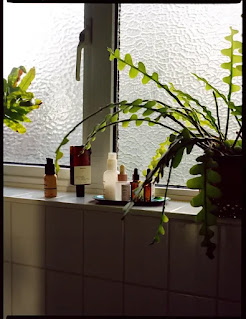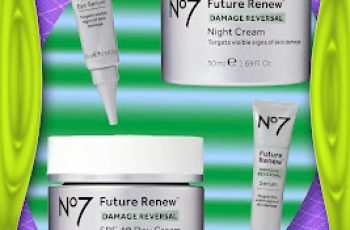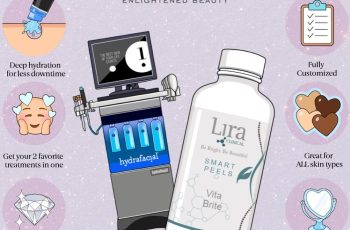
Face Masks Frequently Asked Questions (FAQs)
Are face masks worth it?
Having a bit of a beauty detox can feel like fun, but is it worth the money? Quite simply, yes. It helps to deliver active ingredients to the skin which will help improve the appearance of your skin and help to deal with certain skin conditions.
They are also growing in popularity in the UK, with data from the NPD group highlighting sales sky rocking in previous years, while this has only sped up as time has gone on.
What are the different types of face masks?
There seem to be endless amounts nowadays, however broadly speaking there are 5 main areas, which are exfoliating, clays, hydrating moisturising and sheet masks. They all offer various benefits, therefore you need to carefully consider what you are trying to achieve, what skin condition you have and what will help you the most.
How long do you leave a face mask on for?
It will all depend on the product, not to mention how thick you apply it to your face, but in general it should be on for 10 minutes. This will give it enough time for the formula to start hardening and taking full effect.
How often should I have a face mask?
Again this can depend on the skin condition and how your body reacts, so the best solution is to experiment. It can also depend on the ingredients used within a face mask. Beyond this however, we do recommend around 2-3 times per week.
Some masks do allow for it to be used once per day, but if you do this then make sure you are moisturising afterwards as you don’t want to dry out the skin.
When is the best time to use a face mask?
There isn’t exactly a certain time of day that works best, it is more to do with preparation, time to complete your skincare routine and whether you require make-up. The most conventional time people use a face mask is in the evening, as before you apply the mask you need to completely remove your make-up, cleanse the face and exfoliate.
For the same reason, many people also see benefits from trying the face mask in the morning, however we recommend basing this on when best suits your lifestyle.
Why does my face tingle while using a face mask?
The frustration of feeling that tingling on the face after putting on a mask and not being able to scratch is unbelievable. But it also raises fear in some that it is having a negative reaction. Well it depends on the formula, but most of the time it is absolutely fine and a completely normal reaction.
Ingredients such as glycolic, malic, tartaric and lactic acid (all AHA’s) and salicyclic acid (a BHA) are often present in face masks and these chemical exfoliants can create a tingling feeling, which is completely safe and normal.
Why do I get spots after having a face mask?
While some people might have a reaction, the most common reason is to do with the toxins and impurities being removed from the skin. When you think about the point of a face mask, it is to remove and purge these impurities from the skin. While they will diminish and reduce as you build this in to your routine, on the first time you may have a ‘breakout’ as the impurities are pushed out from the skin.
These masks will dig deep into your skin and remove any dirt, oil and dead skin that has been trapped there, therefore if you don’t often do something like this then it could be cleaning years of dirt.
Can I use a face mask if I have a beard?
It all depends on the length of your facial hair. If it is short and the cream can reach your skin then it is worth it, whereas if you have a thick beard then it could prevent it from taking effect. There are many signs that the parts of your face covered by hair are slightly better protected against damage and toxins anyway, but if it is short enough then it is worth it.
Should you wash your face after a face mask?
Yes, you need to wash your face afterwards. The charcoal has soaked up all the excess oil, dead skin cells and impurities, therefore you don’t want to leave these on your face. It could also dry out your face if you leave it on for a lot longer than the recommended time.
This all contradicts with sheet masks, which you don’t want to wash off as they are packed full of serums which will help to moisturise the skin.
Do face masks remove blackheads?
Yes they do, in fact this is one of the most common reasons people use the Procoal face mask, as the activated charcoal is like a magnet for dirt and filth trapped in the skin. As you begin to use face masks more regularly and look after your skin, there will be less trapped dirt. Just make sure to exfoliate beforehand in order to open up the pores efficiently.
Which face mask is right for my skin type?
There are so many different types of face masks now, it can be hard to know where to start. The new fad ingredients add even more confusion, as you hear about everything from snail slime to bamboo.
If you have oily skin then your main aim is to remove any excess oil on the skin. You can also expect oily skin to accompany clogged up pores and a large amount of trapped impurities. For this reason, a clay or activated charcoal mask can be a good option.
On the other hand, if you have dry skin then you may want to go for a gel mask, packed full of antioxidants and infused with collagen. These will hydrate your skin (thank you hyaluronic acid) and leave you with a glowing complexion. This is another reason why sheet masks are growing so much in popularity, packed full of serum and hyaluronic acid. You will also want to look out for arbutin and bearberry extract.
If you suffer from acne then a purifying mask is your answer (once again, charcoal is a great option), as it will extract all the impurities from the skin. One thing to remember is the first time you use the face mask, as the toxins are being purged from the skin, it might lead to you having a breakout, but this is natural and part of clearing the skin. For this reason, we sometimes recommend doing it for the first time around a period where you can handle a breakout.
If you happen to be part of that lucky group that have normal skin then you can experiment a little to find the right mask for you. If you’re skin is relatively healthy, then you can focus on the main targets, which is anti-aging and hydrating the skin, ensuring the collagen and elastin production remains high.
What do you do before a face mask to prep the face?
The preparation before you put on the face mask is just as important as the actual face mask itself! So many people skip this part and go straight to application, but they are cutting themselves short and are preventing themselves from seeing the best results possible.
First you will want to completely clean your face, removing any make-up from the skin (guys, just wash your face thoroughly). After this, you need to consider the exfoliator that works best for you. Some use machines, while other prefer chemical exfoliants (AHA and BHA), which ever you decide, you need to do this in order to clear off the top layer of dead skin cells, excess oil and then to open up the pores. Wash off the exfoliator with warm water, which should help to keep the pores open, before then applying the product to your skin.
How do I apply the face mask properly?
Start from the top part of your neck and rub the cream in using an upward motion. You want it all to be equal on your skin. Be careful to avoid certain areas such as your eyes and your mouth. Some prefer to use their hands, while others use brush, no one way is right. After that, it is time to sit and wait.
Should I avoid the sun after using a face mask?
You don’t need to fear facing the sun if you have applied a face mask. However, we always recommend protecting your skin from the sun, as this is one of the biggest factors in aging skin, therefore make sure to use a decent sun cream.
Do I put on moisturiser after a face mask?
Yes, once you have washed the face mask off, add a moisturiser to your face, in order to hydrate the skin. You may actually want to try steaming the face before you add the moisturiser, so it can get to the deepest layers of the skin efficiently.
Do face masks expire?
All reputable face masks should have a date on them. It should be remembered that some actually have a manufacturing date rather than an expiry date, which can sometimes add confusion (especially with products created in Korea).
Face masks will also go off quicker once they have been opened. Try to make sure the lid is on firmly, so no air can get to it.


